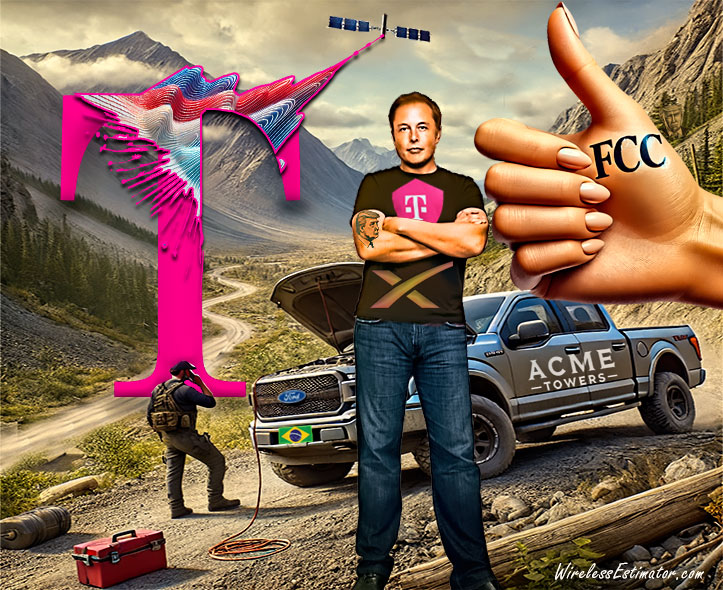
The Federal Communications Commission (FCC) has approved SpaceX to use its Starlink broadband satellites to provide direct-to-phone service for T-Mobile customers. This marks the first collaboration between a satellite operator and a wireless carrier to receive FCC approval for supplemental cell coverage from space.
“The Commission recognized that satellite-to-device connectivity can support critical public interest benefits, including ubiquitous connectivity, access to 911 service from remote areas, technological advancement, and innovative spectrum use,” the FCC noted in its filing.
The announcement builds on the partnership SpaceX and T-Mobile launched in 2022 to eliminate cellular dead zones across the U.S. The two companies were also granted temporary clearance in October to deploy Starlink satellite service to areas affected by Hurricane Helene. Meanwhile, competitors Verizon and AT&T have formed similar agreements with satellite operator AST SpaceMobile.Conditions and concerns surrounding FCC approval
Despite the approval, the FCC has imposed conditions on SpaceX’s operations. The agency has yet to decide whether to allow SpaceX to increase the radio emission power of its satellites, which could enable real-time voice and video calls. This aspect has drawn concerns from competitors like AT&T and Verizon, who argue that bypassing current power flux-density limits might interfere with their existing networks.
“The FCC is actively promoting competition in the space economy by supporting more partnerships between terrestrial mobile carriers and satellite operators to deliver on a single network future that will put an end to mobile dead zones,” said FCC Chair Jessica Rosenworcel in a statement.
Additionally, the FCC has deferred its decision on whether SpaceX can launch an additional 22,488 Starlink satellites. This comes after an earlier approval in 2018 for the deployment of 7,518 satellites. While the first satellites with direct-to-cell capabilities launched in January, SpaceX has indicated that only basic texting (SMS) capabilities will be tested initially, with support for voice and data expected by 2025.
Regulatory scrutiny and competition in satellite internet
Rosenworcel’s comments align with the FCC’s broader push for competition in the satellite internet space. SpaceX’s Starlink currently dominates the sector, accounting for nearly two-thirds of all active satellites and a significant share of internet traffic. Rosenworcel has emphasized the importance of fostering a competitive landscape, stating, “Our economy doesn’t benefit from monopolies. So we’ve got to invite many more space actors in, many more companies that can develop constellations and innovations in space.”
In 2022, the FCC denied SpaceX $885.5 million in rural broadband subsidies, citing concerns over its ability to deliver on promised service levels. Critics have accused the decision of being politically motivated, but the FCC maintains it was based on ensuring taxpayer funds are properly allocated.
The future of satellite-to-device connectivity
SpaceX and T-Mobile’s partnership represents a significant step forward in satellite-to-device connectivity, a technology that promises to revolutionize the telecommunications industry. However, questions remain about how the FCC will balance its support for innovation with the need to prevent market dominance and protect existing terrestrial networks.
As SpaceX continues to expand its Starlink constellation and competitors like AST SpaceMobile enter the fray, the regulatory landscape will likely play a critical role in shaping the future of satellite-powered mobile connectivity.


















